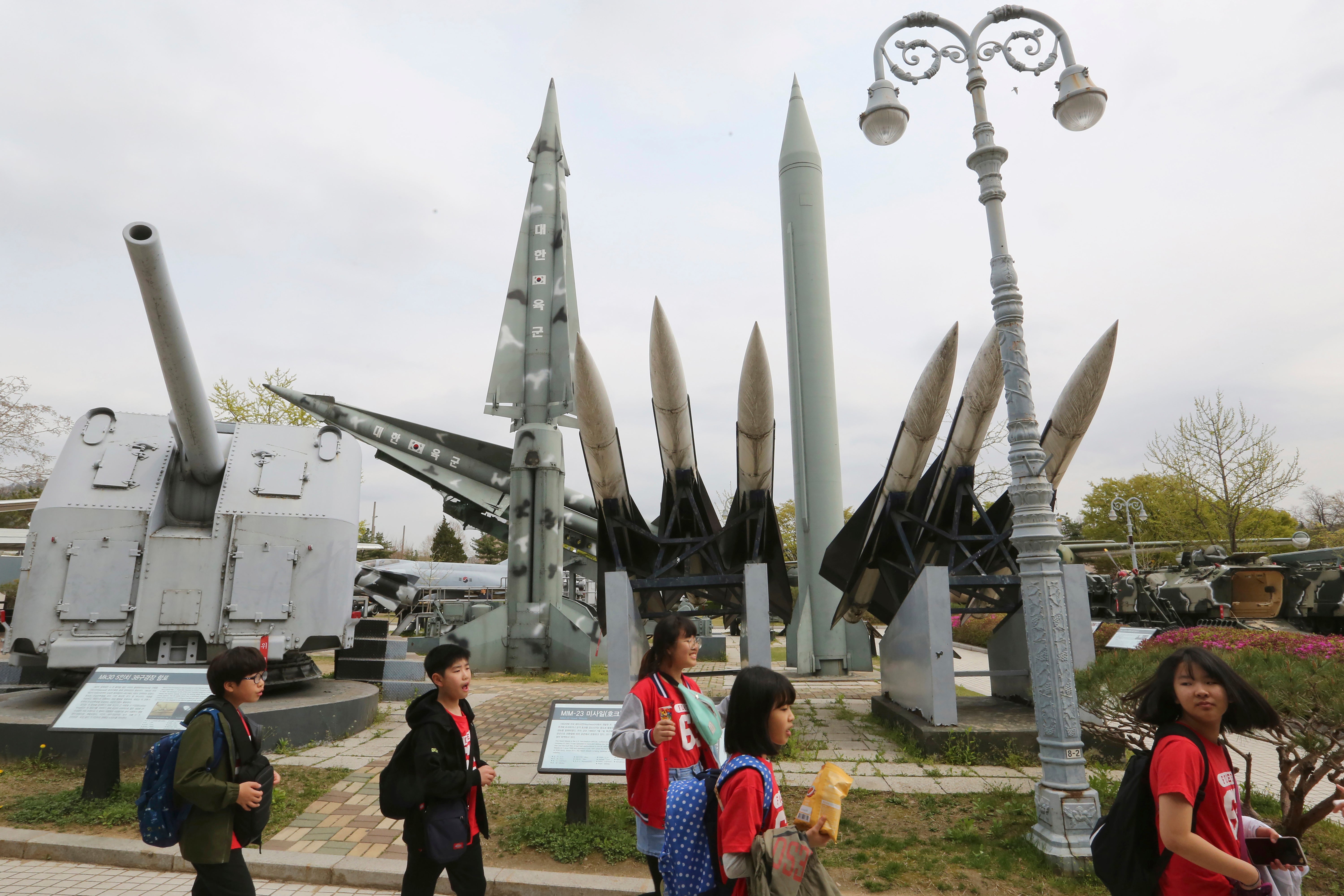S. Korea has key rocket launch, days after North's ICBM test
South Korea says it has conducted its first successful launch of a solid-fuel rocket in a major development in its push to acquire its space surveillance capability amid rising animosities with North Korea

Your support helps us to tell the story
From reproductive rights to climate change to Big Tech, The Independent is on the ground when the story is developing. Whether it's investigating the financials of Elon Musk's pro-Trump PAC or producing our latest documentary, 'The A Word', which shines a light on the American women fighting for reproductive rights, we know how important it is to parse out the facts from the messaging.
At such a critical moment in US history, we need reporters on the ground. Your donation allows us to keep sending journalists to speak to both sides of the story.
The Independent is trusted by Americans across the entire political spectrum. And unlike many other quality news outlets, we choose not to lock Americans out of our reporting and analysis with paywalls. We believe quality journalism should be available to everyone, paid for by those who can afford it.
Your support makes all the difference.South Korea said it made its first successful launch of a solid-fuel rocket Wednesday in what it called a major development toward acquiring a space surveillance capability amid rising animosities with rival North Korea.
The launch came six days after North Korea conducted its first intercontinental ballistic missile test since 2017 in an apparent attempt to expand its weapons arsenal and increase pressure on the Biden administration amid stalled talks.
South Korea's domestically built solid-propellant rocket was launched from a state-run testing facility with the presence of Defense Minister Suh Wook and other senior officials, the Defense Ministry said in a statement.
It said solid-fuel rockets have simpler structures and are cheaper to develop and manufacture than liquid-fuel rockets. It said solid-fuel rockets also reduce launch times. The statement said South Korea will soon launch a spy satellite into orbit aboard a solid-fuel rocket.
South Korea currently has no military reconnaissance satellite of its own and depends on U.S. spy satellites to monitor strategic facilities in North Korea.
In 2020, South Korea won U.S. consent to use solid fuel for space launch vehicles, a restriction that Washington had previously imposed on its key Asian ally out of concerns that its use could lead to building bigger missiles and trigger a regional arms race.
Wednesday’s launch came amid tensions over North Korea’s ICBM launch last Thursday, which broke its own moratorium on big weapons tests and violated multiple U.N. Security Council resolutions.
South Korea’s Defense Ministry concluded earlier this week that North Korea fired the Hwasong-15 ICBM, rather than the newer, bigger, longer-range Hwasong-17 that North Korea claimed to have tested.
“Coming at a very grave time following North Korea’s lifting of the weapons tests moratorium, this successful test-launch of the solid-fuel space launch vehicle is a key milestone in our military’s efforts to (build) a unilateral space-based surveillance system and bolster defense capability,” the South Korean statement said.
The rival Koreas remain divided along a heavily fortified border since their division at the end of the World War II in 1945. To cope with North Korea’s increasing nuclear threats, South Korea has been building and purchasing powerful conventional missiles, stealth fighter jets and other high-tech weapons systems. But South Korea has no nuclear weapons and it's under the protection of the U.S. “nuclear umbrella,” which guarantees a devastating American response in the event of an attack on its ally.